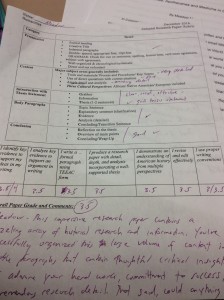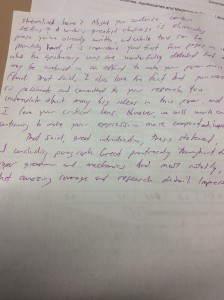Jan
2017
Colonial paper
Your Name: Meadow
Topic: Apothecary and Medicine in Colonial America
Purpose: In Colonial America your health was important no matter what culture you belonged to and the knowledge of health was obtained by the apothecary. The apothecary was a vital part of everyone’s daily life.
The apothecary did a lot on a daily basis. The apothecarist would be your dentist, pharmacist, doctor, midwife, and surgeon. As the dentist, the apothecarist would rip out your teeth with a tooth key and then make the medicine, prescribe the medicine, and then would use it on you. It was a smart move having one person do all those jobs because you didn’t have to travel and all of it could be done more quickly. The doctor, the surgeon and the midwife all had similar jobs so it already made sense that they would be the same person. The doctor was centered around medicine and science, and so was the surgeon, but the surgeon would perform surgeries. The midwife dealt with all the births, and they were more centered around herbs. Today, all those jobs are split up. We have pharmacists that prescribe drugs. We have people that make them. We have doctors. We have dentists. We have surgeons. But back then, all those jobs would be done by one or two people in your town. One person would be in the front of the shop and be the main apothecarist. And the other one would be the surgeon which would be in the next room. Only a wall would be separating them. This person would work very hard and must have had a lot of knowledge to fulfill these tasks.
What did you have to know to qualify as an apothecarist? Maybe you only had to know some of the jobs and then you could learn the other ones in your apprenticeship. I know that in the Native side of things they would have a conjurer. Did he have the same amount of jobs? The Natives didn’t have a dentist or surgeon because they were more spiritual and used herbs mostly. Still, In those two cultures the doctor had many more jobs and must have had to been very skilled. On top of all of these jobs, the apothecarist would come to you house if you needed them. For example every birth would be done at home. So the apothecarist would come other to your house and help you give birth. The apothecary was also used to as a shop. They would sell herbs, candles, cooking ingredients, toothbrushes, and tobacco. The apothecary would be a part of your daily life. Some more than others, but still everyone would go to the apothecary whether it was for a stomach ache or for cooking ingredients. It was a very busy job that required a lot of attention and energy.
Normally the apothecary would be a man’s job because women weren’t taken seriously. Just like today, men didn’t think women had it in them to do these jobs, but some women pushed through that. Most doctors were men and few would be women. Most women knew home remedies to use in their daily lives. The women would compete with the male apothecarist for right to make and prescribe medicine. This shows that misogyny existed very early in time. We are still struggling with this problem. In 1970 only 9.7% doctors were female. Now 34.2% of the doctors are female. Although we have made a huge leap with women in medicine, it is still pretty bad. Now imagine back in Colonial America, over 200 years ago they were suffering from the same problem. That’s why it was so important to be a female apothecarist because you had to stand up against rules confining you from being you.
There would normally be at least one apothecary in each town. How many apothecaries were in the original Jamestown? They probably only had one because there weren’t a lot of people there, but the English probably regretted that decision. There were new diseases and illnesses that the English could not comprehend. Maybe having more apothecaries there might have helped because then they would have had a better understanding of the developing diseases. There was another problem that the English didn’t think of when planning out the voyage to the New World in 1607. In the original rules of Jamestown everything that was found, like land or gold, would belong to the London/Virginia Company. All the hard work that you would do didn’t matter. You would be paid the same amount no matter how hard you worked. You weren’t allowed to buy or sell anything to anyone else if it didn’t go through the London/Virginia Company first. Later on they changed that rule because no one would work hard on their job. Now you could sell your herbs and make money off of them but you still couldn’t sell herbs to other countries.The English didn’t want you trading with anyone else. If you needed something from the Spanish, all the way back in England, they would get it for you. But you weren’t allowed to trade with the Spanish directly. For Example, peruvian bark, a common medicine but you had to get it from England. You couldn’t get it just from peruvian traders. This made it a lot harder for trade, but it did mean that the trading was authentic. And it kept the London/Virginia Company in the colonization of Jamestown.
In colonial america, war was very relevant and it injured a lot of people. To prevent them from dying, there were army doctors. Having an army doctor was very important. If you didn’t have one, a lot more people would die in the war. It was also a well respected job, and you can tell because people would pretended to be one. There were three different doctors on the battlefield. The first was the professional one. He was the actual doctor and surgeon. The second one was the apprentice. He was learning his work on the job. The last one was the quack. He pretended to be a doctor to gain social status on the battlefield. Now these three, mostly just the first two, would do treatments and take care of diseases. During the war there were a lot of diseases. There was dysentery. Dysentery was caught from drinking bad water. This was a very popular diseases in the colonial ages because the first Jamestown settlement was built next to marshy land where there was brackish water. This brackish water carried bacteria and germs, but the English didn’t know this which is why a lot of people suffered and died from dysentery. Symptoms of dysentery were having diarrhea and vomiting. It emptied out all the fluids in your body which is what was so damaging at the time. Another disease that was caught in the war was smallpox. Smallpox was easily spread through contact with the infected person or contact with something that the infected person has passed on the germs to. For example if that person were to sweat in their clothes or bed sheets and then someone else touched them. That person would be infected. That is why smallpox spread easily in tight conditions such as small army tents. And the last ones were fever and diarrhea. We now know that those are normally symptoms of other diseases, but back then they didn’t know that.
This job would have been perfect for someone that needs everything clean and tidy. In order to keep everything clean, it had to be neat. I know that they didn’t understand what germs were but the knew a lot about how to keep them away. They knew not to have sick people in rooms with others. They knew to keep things clean. They knew to clean wounds. And they knew to take off the arm when there was no way of saving it.

